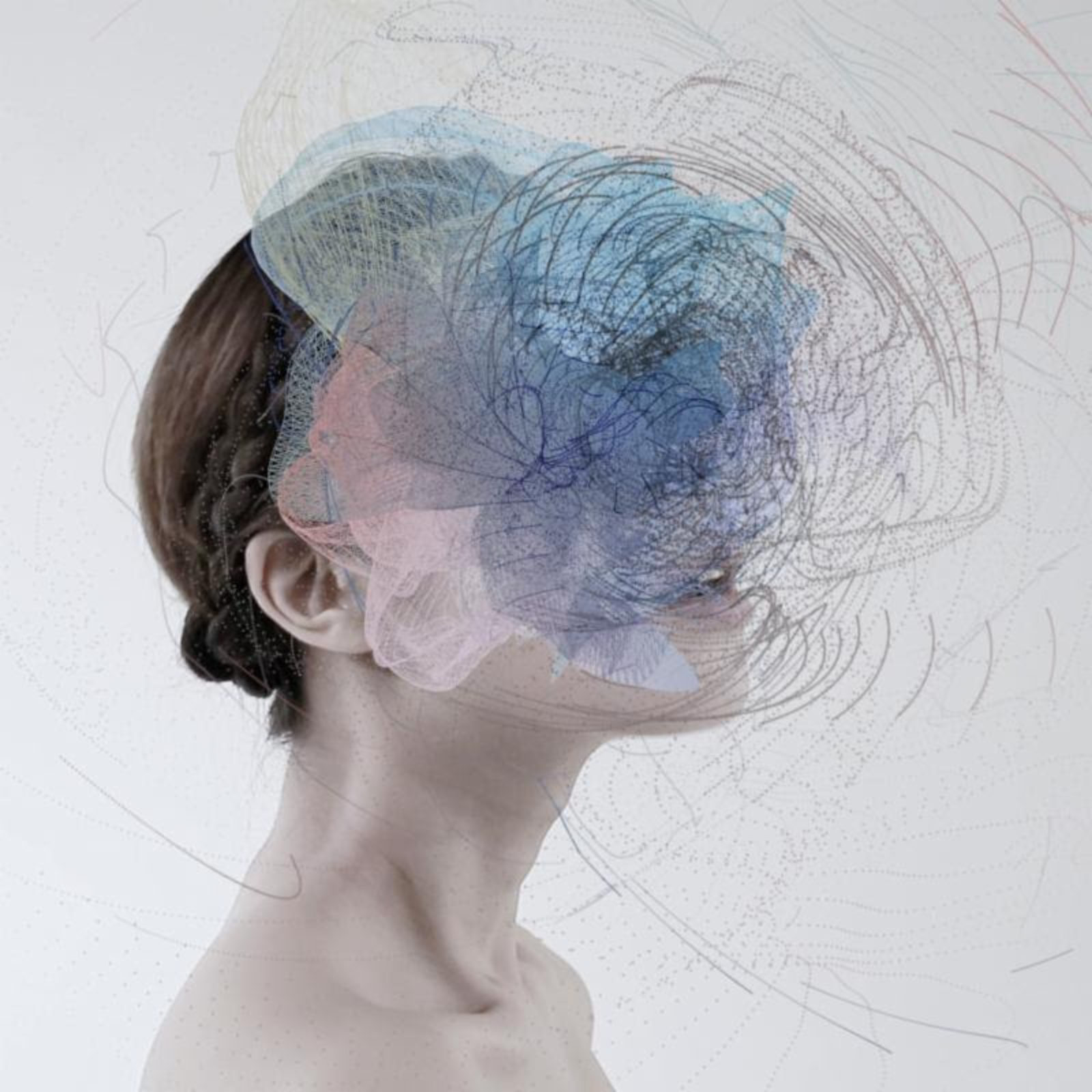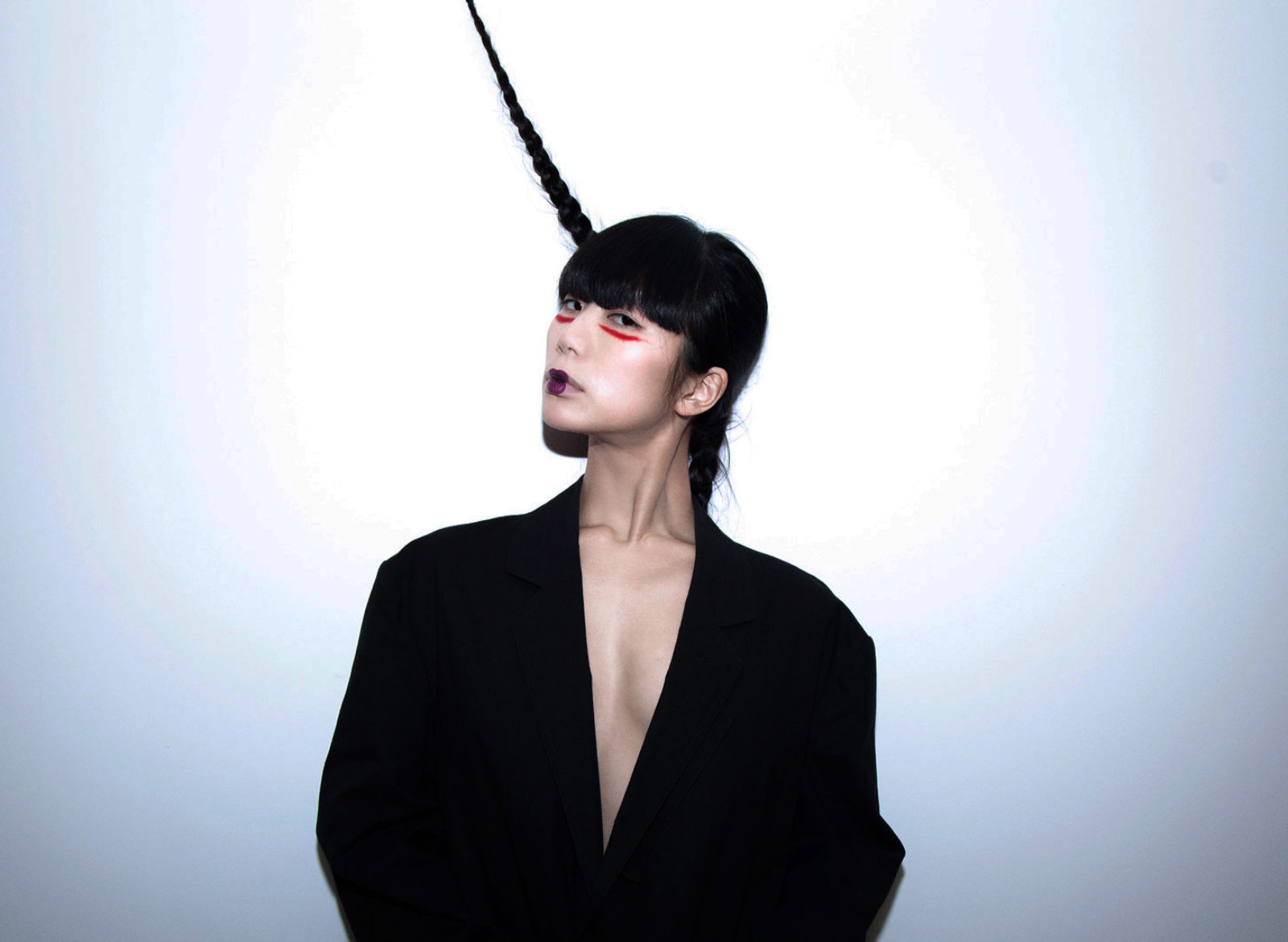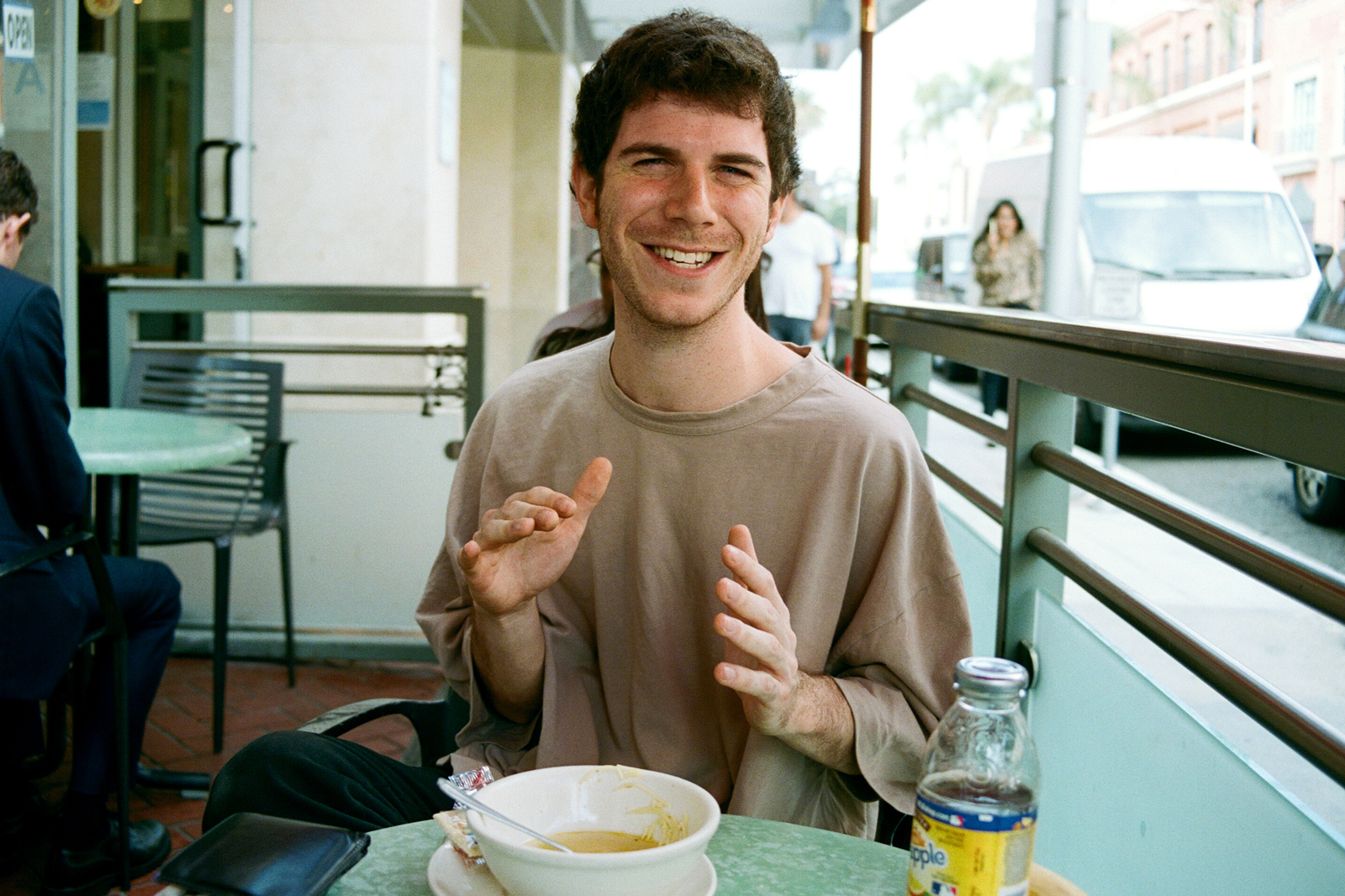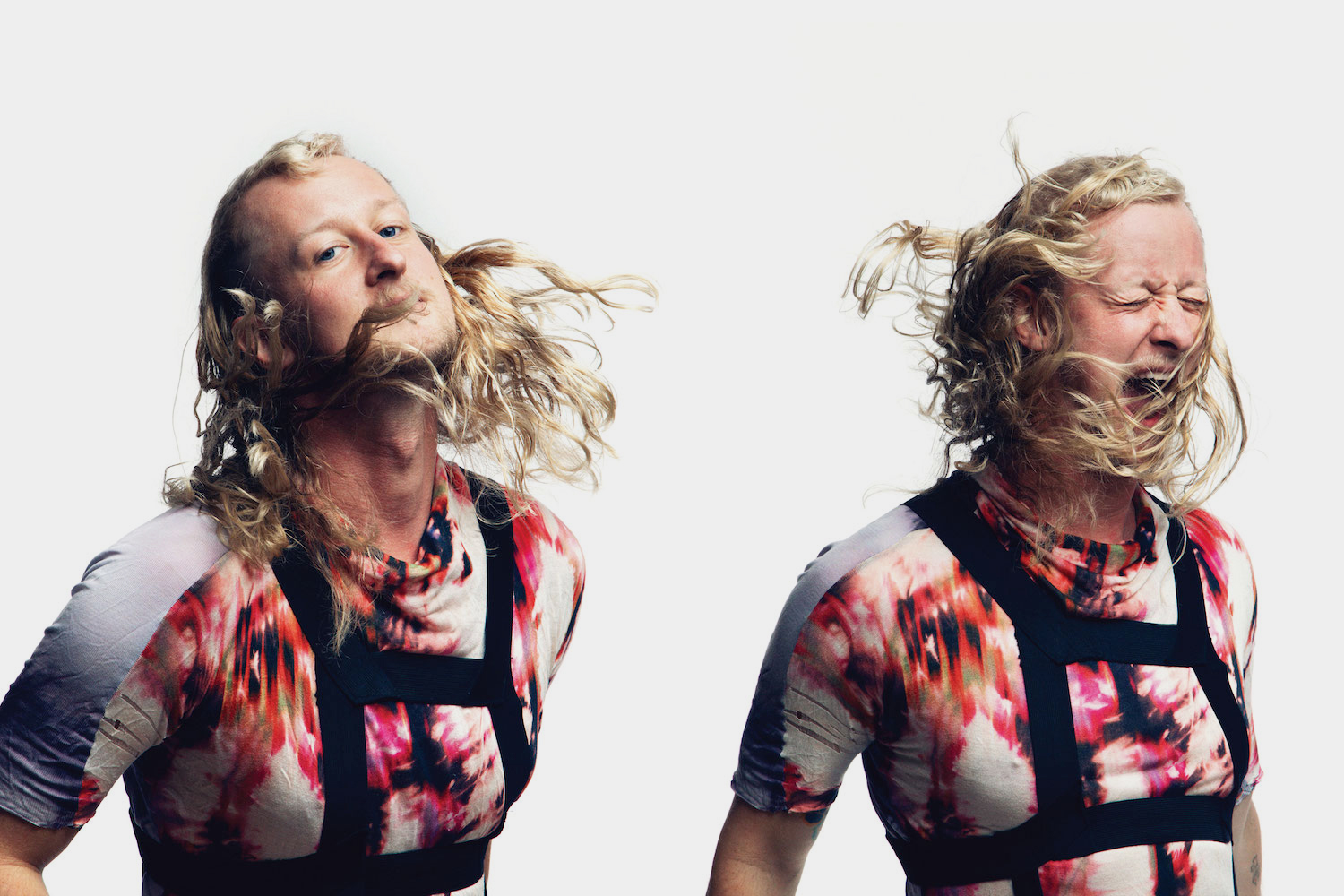Interview: Jillian Billard
Photo: Özge Cöne
Japanese vocal artist Hatis Noit’s voice conjures an ecosystem of feeling, pulsing with life. It is simultaneously transcendent, and deeply of this world. Like a lucid dream it transports us into a realm that exists beyond language or logic.
Seeing Noit perform, it seems impossible that such a complex web of sound could come from just one person. It resonates expansively, as though there is an entire chorus present. At parts she revels in the release of chanting and mantra, reminiscent particularly of meditative Buddhist and Gregorian chanting. At times her voice is classically operatic, exuding over a pulsating base line. In other parts her music is distinctly experimental, and there is a sense that we as listeners are discovering something primordial alongside the artist herself.
The name Hatis Noit is derived from Japanese folklore, referring to the stem of the lotus flower. The lotus flower represents the living world, with its root in the spiritual realm. Much like the relationship between elements of the natural and spiritual worlds, there exists an ethereal dance between the components of Noit’s songwriting that is unattributed to language or logic. Deconstructing and repatterning elements of Western classical and Japanese folk music, new layers are continually introduced over repetitive choral lines and beats; ebbing and flowing in a way that simultaneously defies balance and feels like a universal truth. Her sensibility of musicality is innate, and upon hearing the immense power and control of her voice, it is clear that her relationship with sound comes from a place deep within her. “I feel it,” she tells me.
In anticipation of the upcoming release of the Noit’s 4-track EP, Illogical Dance on March 23, I spoke with Noit about deriving inspiration for her practice from the natural world; how she she came to realize the immense power of the human voice; and her collaboration with electronic duo Matmos (whose remix of the lead track on Illogical Dance you can hear below).
You grew up in a small town in Hokkaido, one of the largest islands in Japan. Can you talk a bit about your life growing up?
It was very beautiful and rural, a quiet place to grow up. It’s on a national heritage protected site so there are lots of tourists and very few local people. In the winter the ocean freezes over and you can see lots of icebergs floating past; it is a very dramatic and beautiful landscape. I left when I was six years old to move to the city, but I’ve been back to visit and it feels very familiar to me, like my home.
What sort of music did you listen to when you were young? Who are some musicians who you believe have shaped your work?
I listened to a lot of religious music when I was younger; Christian, Buddhist, and Islamic music. Their melodies are so beautiful. I mostly listened to vocal and choral music growing up, Gregorian chanting…anything I could find.
Meredith Monk is my main influence, she completely changed my perception of music. I really like simple, minimal music; one or maybe two instruments at a time, like Arvo Pärt’s ‘Spiegel Im Spiegel’ or Holly Herndon’s ‘Unequal.’
You are a self-taught musician, which, hearing the range and strength of your voice, is nothing short of remarkable. How did you first begin singing?
When I was little I loved to sing on my own. I really liked music class at school too, it was my favorite. I was always touching and tapping things, trying to make music out of anything I could find. I tried to mimic everything I heard in the world around me. I was a noisy child! My teacher hated it and was always telling me to stop.
You’ve referred to a trip you took to the Buddha’s birthplace in Nepal when you were 16 as the moment you became aware of the incredible depth and potential of the human voice. Can you talk a bit about this revelation, and how it inspired you to explore singing yourself?
My mother taught Japanese language classes, and one summer she volunteered to spend her six week summer holiday teaching in Nepal. She took me with her on a trip to Lumbini. I was walking around alone early one morning, and I heard someone singing. It was a female monk singing Buddhist chants. The sound moved me so intensely, I was suddenly aware of the power of the human voice. So primal. I knew then I wanted to sing and feel that visceral connection myself.
I think my mother is a very interesting person and is also a big influence on me. She is not a typical Japanese woman. She always wants to explore new things; she has an adventurous spirit and an eclectic music taste; she likes Japanese music and classical music but also latin American music like Pia Sola. She took me to lots of museums and films when I was growing up, which were very adult endeavours! She was very keen to educate me culturally. That’s why she moved to the city after Hokkaido. It was beautiful there and we were surrounded by nature, but there was no culture. Moving to the city opened my eyes to lots of news ideas.
Your music is a blend of contemporary pop, avant-garde, and ambient music, with distinct links to traditional and classical influences. How do you find a balance between these seemingly disparate genres?
I don’t really think about balance. I just make music that I want to listen to. I want to hear my ideal music. I don’t plan the songs, they come together through improvisation. When I make my music, I am driven by the desire to write something strange, something unique. I like strange things in art and film rather than normal or easy things to understand. I like complex and surreal art like the work of Salvador Dali. My songs are like strange collages, nothing is in the right or expected order. Balance doesn’t come into it, I try to make it unbalanced and unexpected if anything!
What is the significance of the title, Illogical Dance? How does your music extend beyond the bounds of logic, particularly in terms of speech and language?
The word “illogical” describes the type of conversation found in nature. Human conversation is logical because we use a learned language. Nature is just sounds and noises, like leaves crunching or water running, but I can hear these sounds as if they are a conversation. Maybe I don’t understand it exactly, but I feel like I can interpret it. It is not a logical language; it is an abstract, illogical language. My music takes the form of a visceral interpretation. It’s not logical, at least to humans; instead I feel it.


Nature is just sounds and noises, like leaves crunching or water running; but I can hear these sounds as if they are a conversation. Maybe I don’t understand it exactly, but I feel like I can interpret it.

Are there any specific places in nature that you go to to derive inspiration?
Yes, my home town Shiretoko, in Hokkaido. The last time I was back there, I lost my way in the forest, before it got dark but close to sundown. I realised if I couldn’t find the way home, I could die. Although it’s a scary memory, it was also so beautiful. I was totally alone and felt close to death, but it was quiet, total silence, no human voices, no cars, industrial noises, completely calm and serene. It was a profound and beautiful moment for me. Sometimes I remember this moment when I make music, the very powerful and conflicting emotions of being at once scared and in awe of my situation. It is a recurring inspiration for my music.
What is your process for creating a track?
I go into the studio, I focus and I start singing and improvising. I record over and over again, making multiple improvised tracks of my vocals. Then I edit all the tracks together to construct the song. It is a very organic and natural way of making music. I don’t write anything or plan it. It just comes out, and I record it as I go.
Do you have any daily rituals that help you foster this sense of free-flowing creativity?
Not every day; but when I get confused and something is unclear comes in my heart, I try to meditate. I find it very helpful to find answers. It makes me feel calm and I can see more clearly what path I should take. Emotions ebb away and the root becomes clear.
Your new EP includes an edit of the title track, Illogical Lullaby by electronic duo Matmos, who have worked with musicians such as Björk. Can you talk a little about this collaboration? What was it like to hear your music played back to you in a new way?
I was so excited to hear it! The Matmos edit was completely different from my version, and yet completely Matmos sounding. I was very happy with it. I just sent them my music by email and they liked it. I was very lucky! We first met in person in Japan, where I saw them while they were on tour. Then, when I came to tour in the United States in 2016, they came to see my show in Baltimore, where they live. We lost our driver and were stranded and didn’t know what to do. They let us stay at their home in Baltimore, and Martin ended up driving us all over the East Coast! It was like a miracle. I would like to work with them again. Hopefully we can.
Who are some contemporary musicians who inspire you?
Meredith Monk of course, in electronic music I love Ben Frost.



